We often like to think looks don’t define us, though in truth, they play a huge part in how we see ourselves and how others treat us.
One Redditor admitted she never thought of herself as attractive. But her husband always told her she was beautiful, and she believed he truly meant it. So when she overheard him standing up for her after his friends called her ugly and a troll, she was shocked to hear him do it in such a backhanded way.
Instead of feeling loved, his words left her crushed. Read her story below.
The woman overheard her husband’s friends calling her ugly and a troll
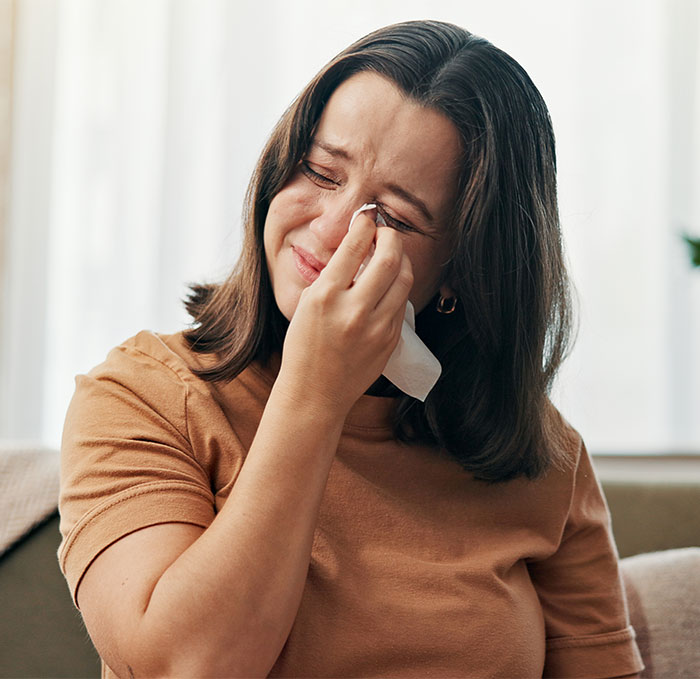
Image credits: YuriArcursPeopleimages / Envato (not the actual photo)
But when he stood up for her, his words only hurt her more
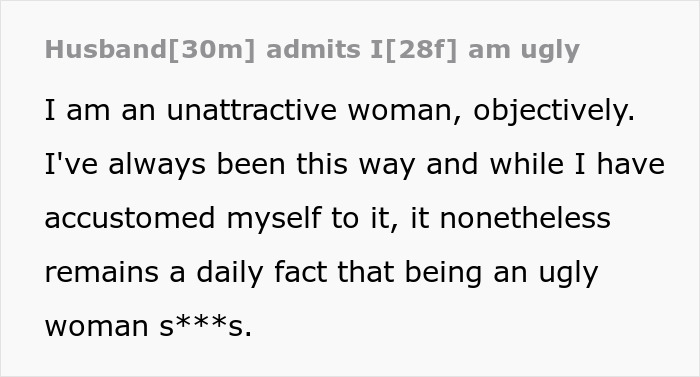
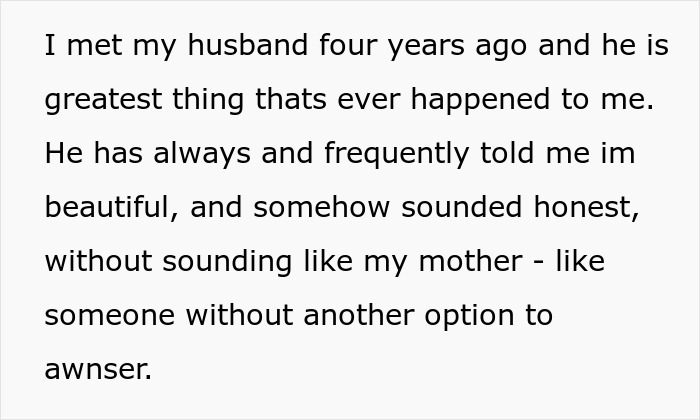
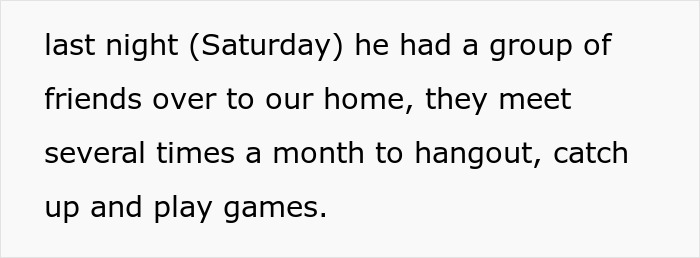
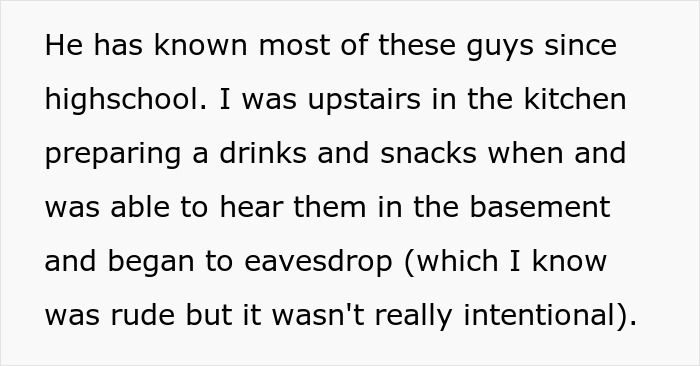
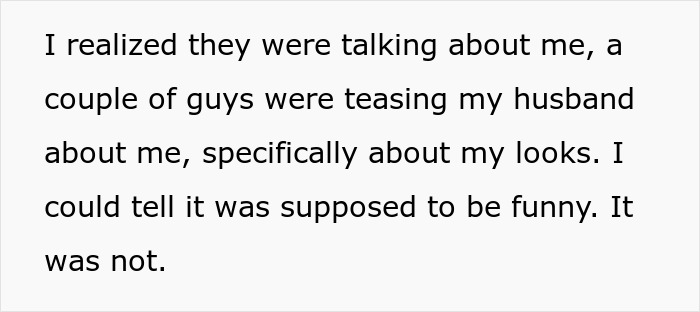
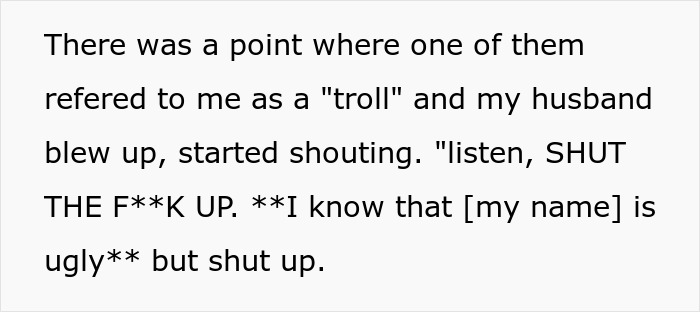
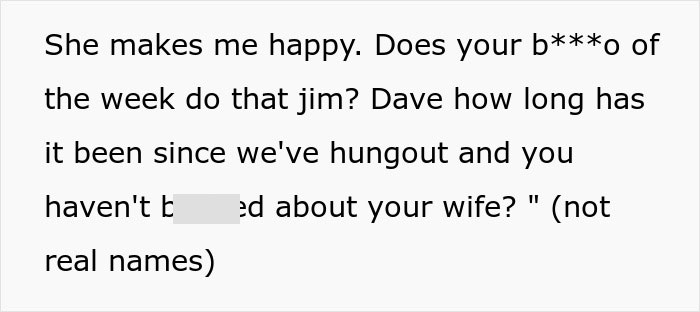
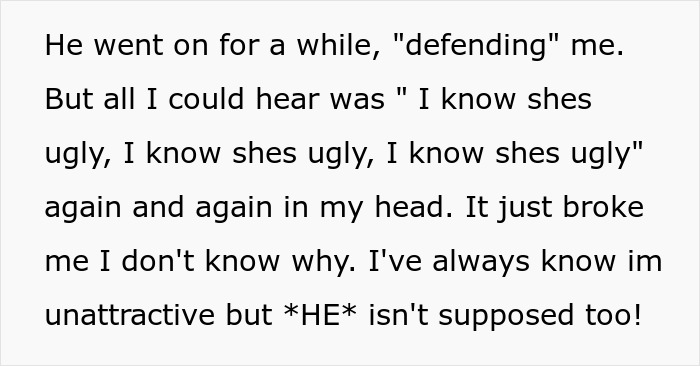

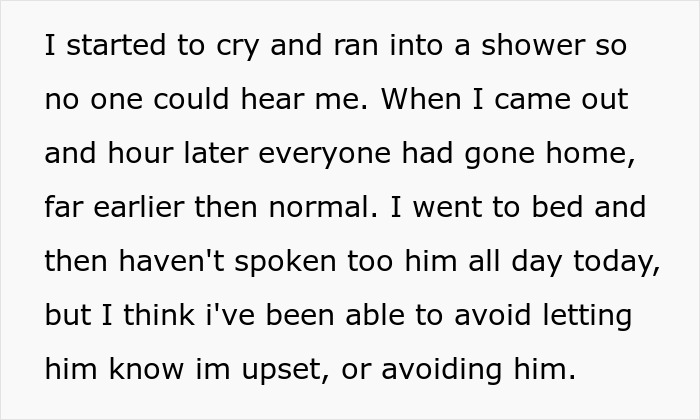
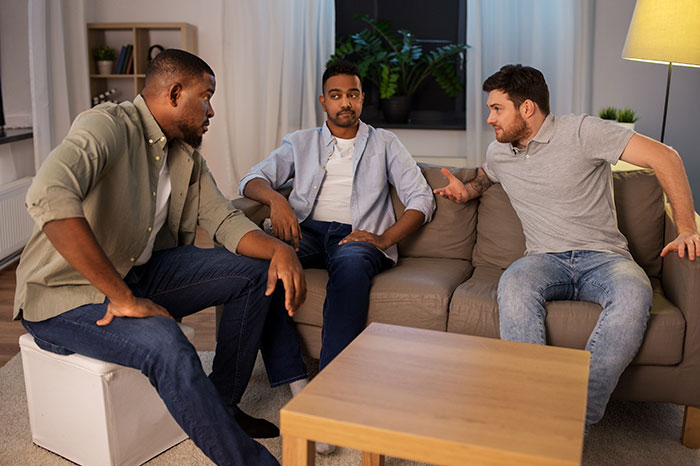
Image credits: GroundPicture / Envato (not the actual photo)
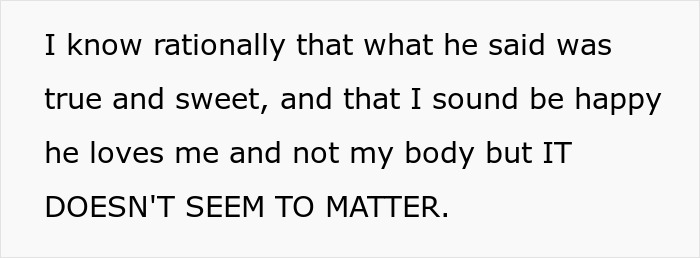
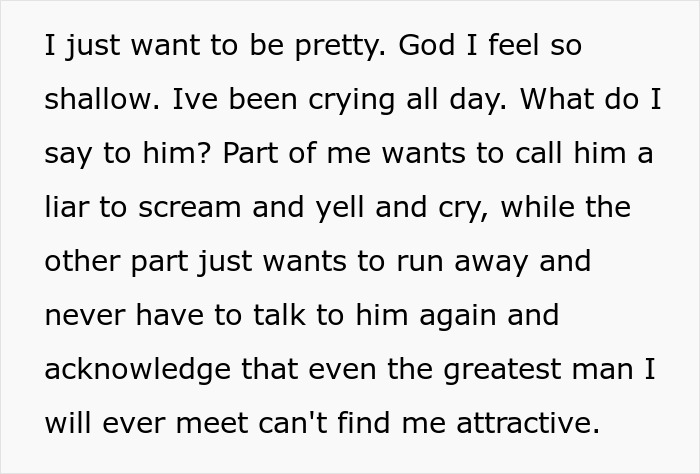

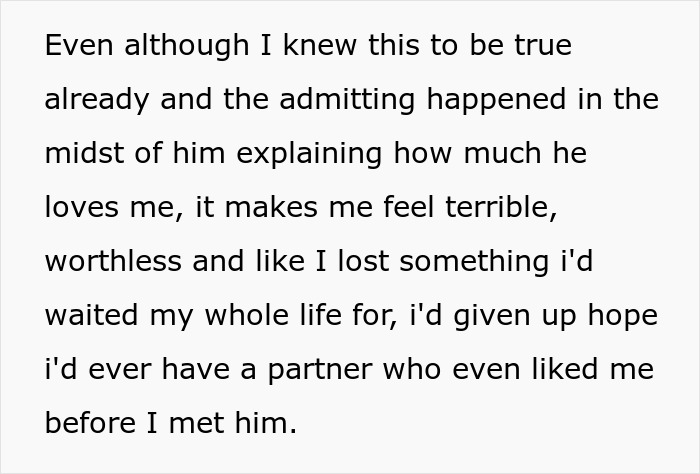
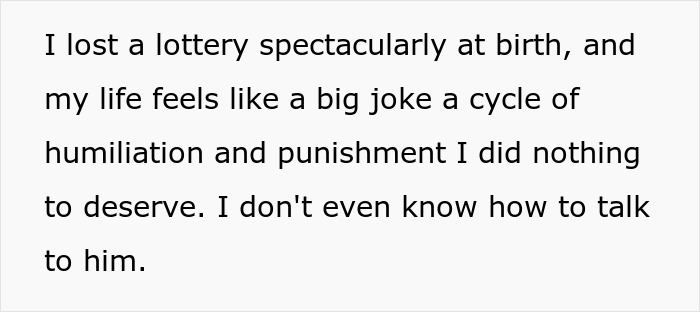
Image credits: uglywoman
The sad truth: most people don’t believe they’re good-looking
Given how much we talk about loving ourselves and appreciating what’s on the inside, you’d think we’d be better at it by now. But sadly, many people still struggle to see their own worth, and the numbers say it all.
A YouGov study asked 2,000 adults whether they’d describe themselves as good-looking. Only 9% of men said yes, and for women, that number dropped to just 2%. A Dove survey found something similar: less than 5% of women worldwide said they felt beautiful.
Those are heart-breaking numbers, but when you think about how much pressure society puts on appearance, they’re not that surprising.
Registered dietitian Megan Hilbert, MS, told Verywell Mind that “so much of our self-worth gets defined during adolescence.” When peers or even family members make negative comments about how we look, we internalize them early on, sometimes as young as three or four years old.
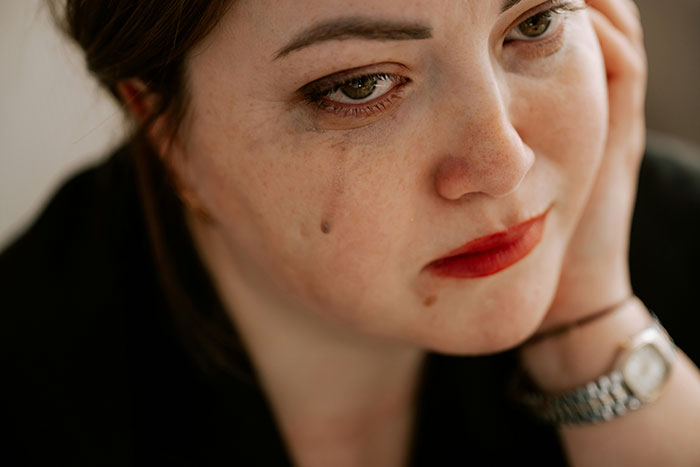
Image credits: Kateryna Hliznitsova / Unsplash (not the actual photo)
But it’s not just about what people around us say. Tatiana Rivera Cruz, MSW, LCSW, explains that body image issues often come from a mix of cultural, social, and psychological factors. Constant exposure to heavily filtered and unrealistic images online makes us compare ourselves to others and feel like we fall short. Perfectionism, anxiety, or depression can make those thoughts even louder.
It’s a toxic cocktail that can lead to serious problems. Poor body image can feed mental health struggles and can cause people to withdraw socially. Fears of judgment and rejection can prompt you to avoid social interactions, Cruz says, which only worsens feelings of loneliness.
So how do you start feeling better about yourself when the world keeps telling you you’re not enough? Both experts agree it takes conscious effort. Surround yourself with positivity—people who appreciate you for who you are, not how you look. Be mindful of what you consume online, too. “Understanding the pervasive nature of these standards can help you reject them,” Cruz reminds.
Hilbert also suggests focusing on what your body can do, not just how it looks. “When we can get a first-person view of ourselves and focus on how our body carries us through the world and allows us to experience all kinds of amazing things, it puts less pressure on our body to be viewed as something that is primarily decorative,” she says.
In the end, learning to love yourself isn’t instant. It’s a long process of unlearning, healing, and redefining what beauty even means, and realizing that you’ve been enough all along.
The author later returned to thank readers for their overwhelming support and kindness
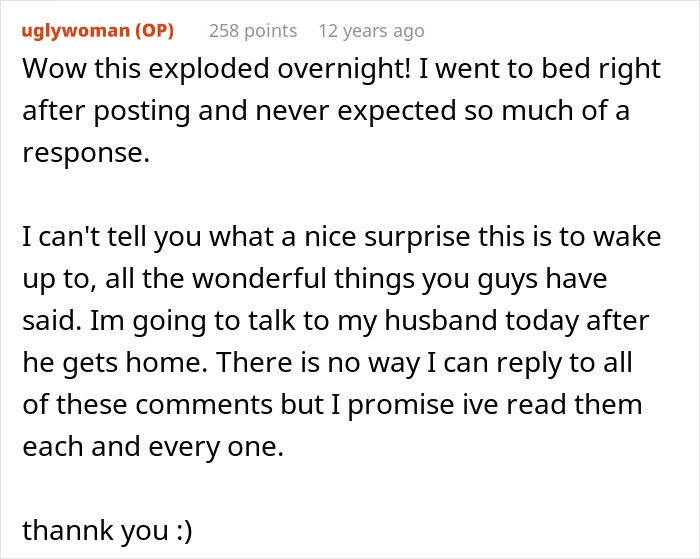
They offered her words of encouragement and thoughtful advice on how to cope with what happened
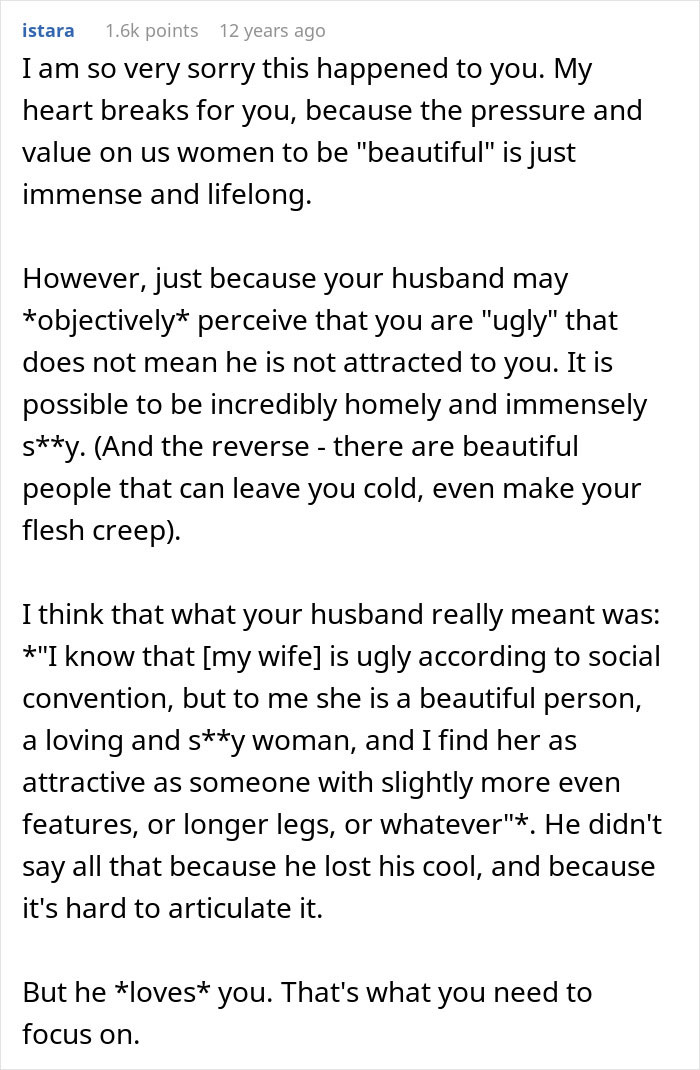

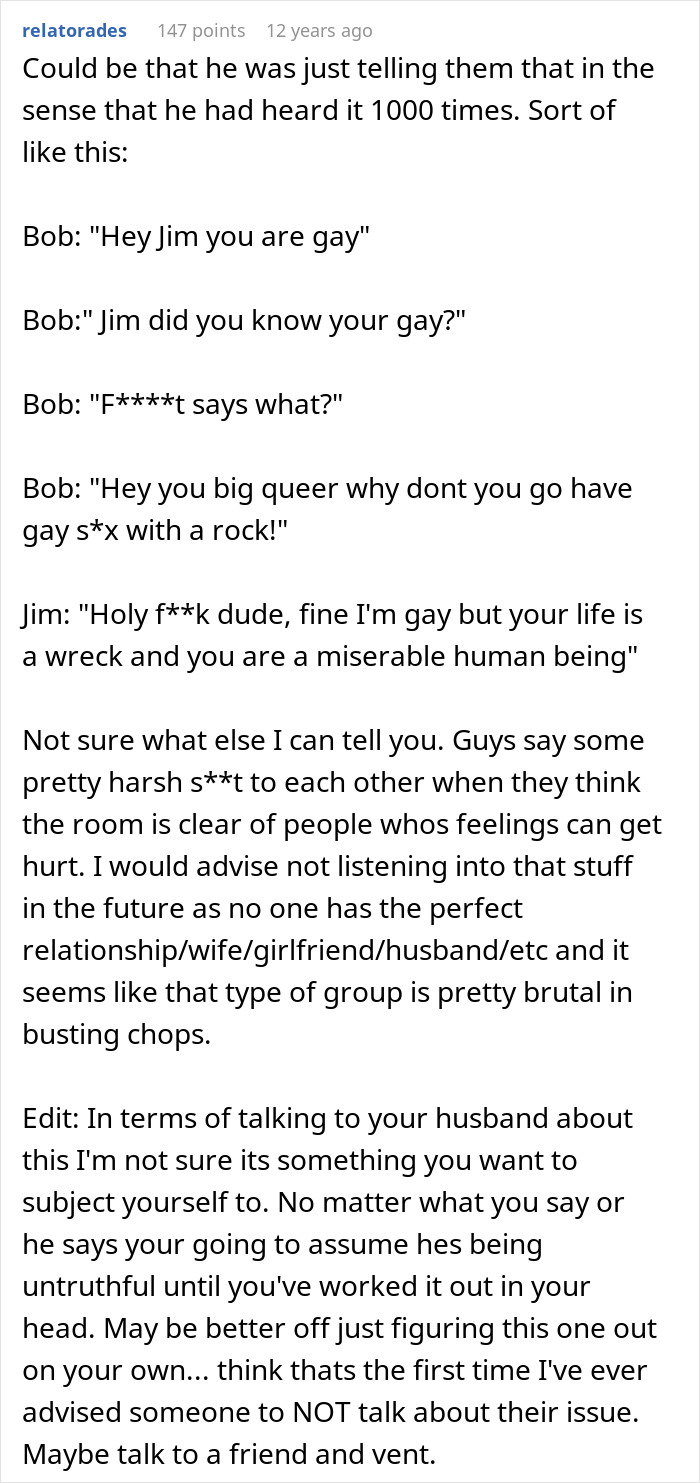
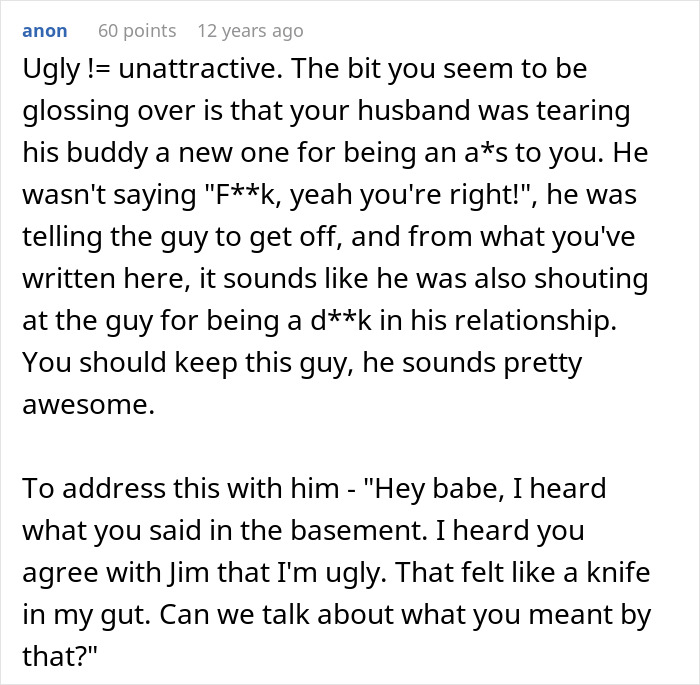

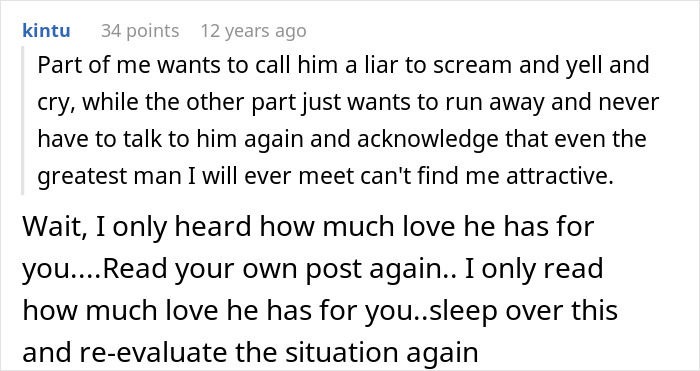
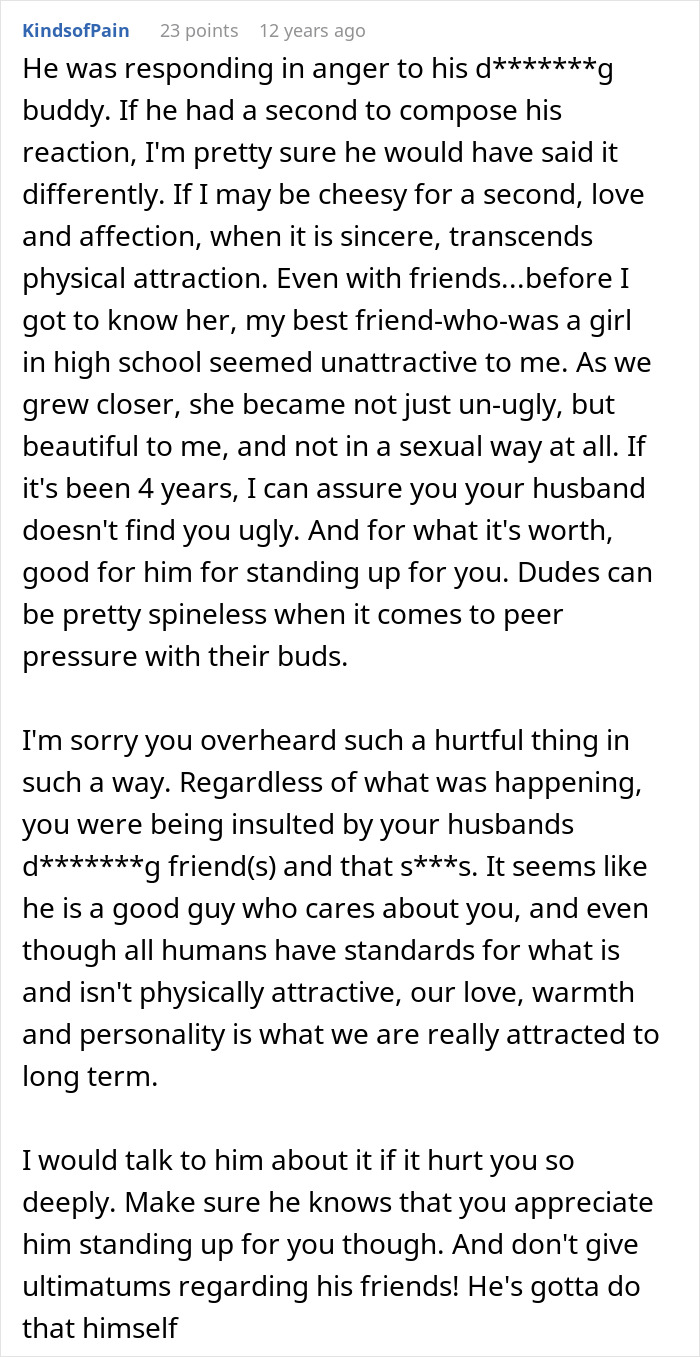
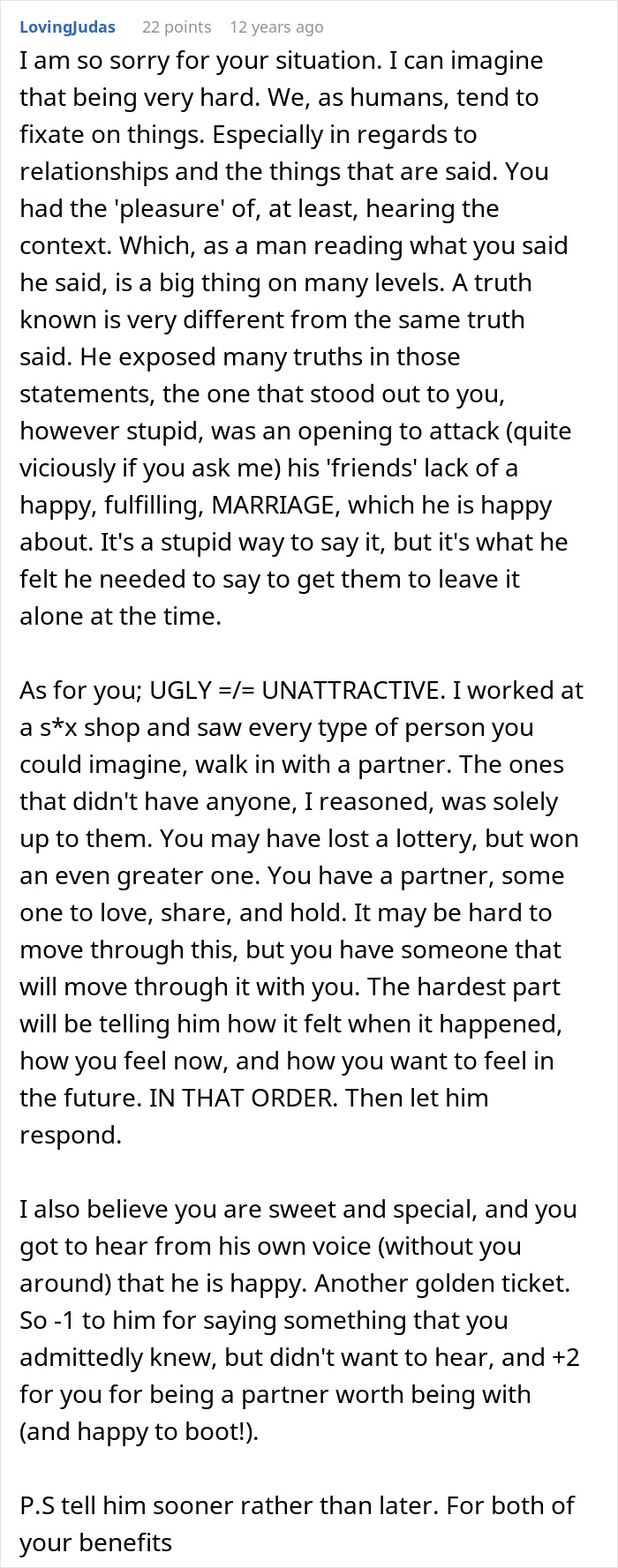

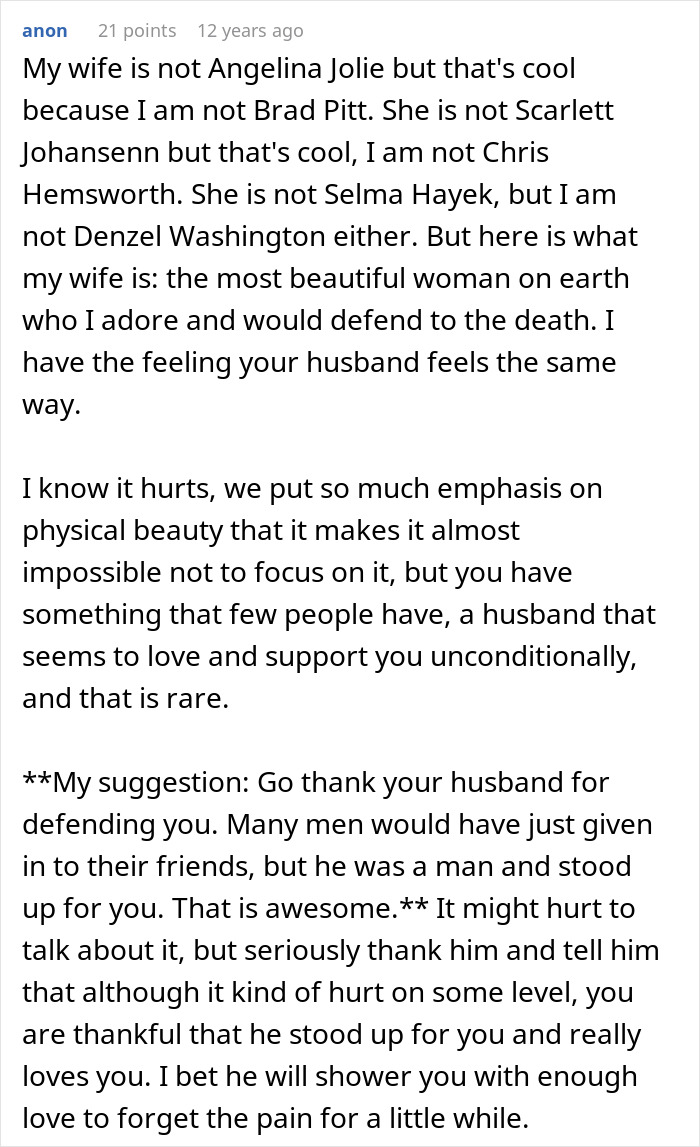
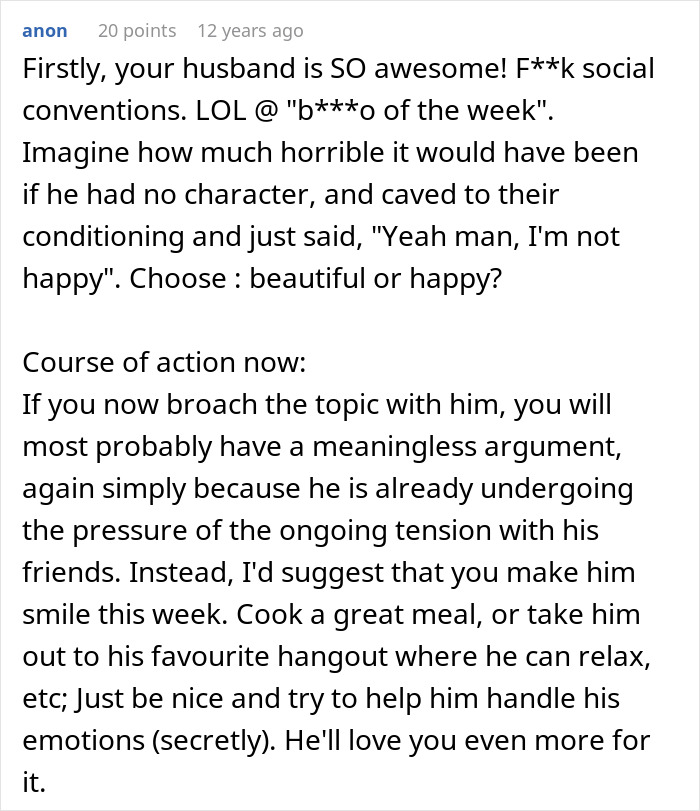
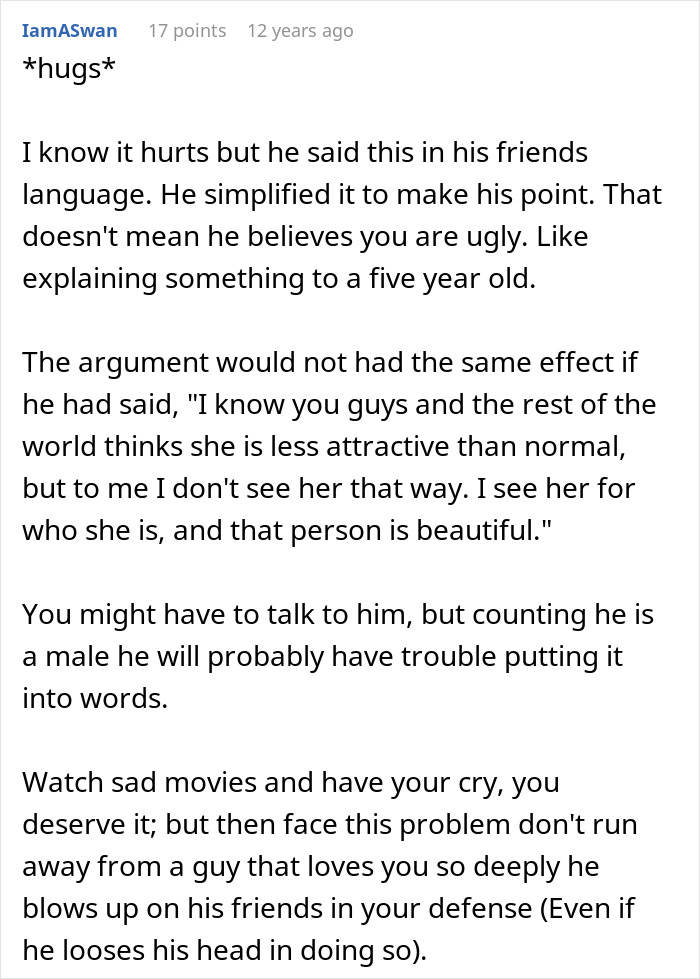
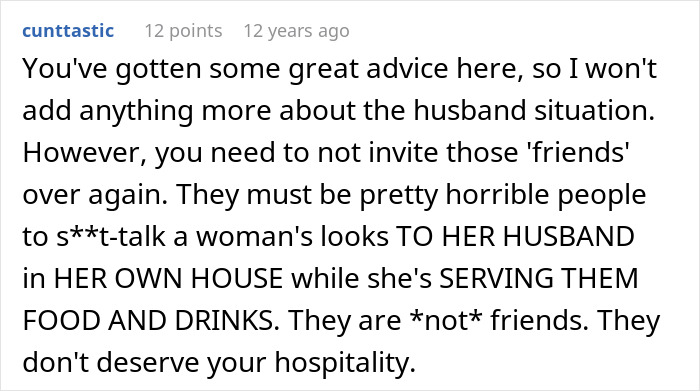
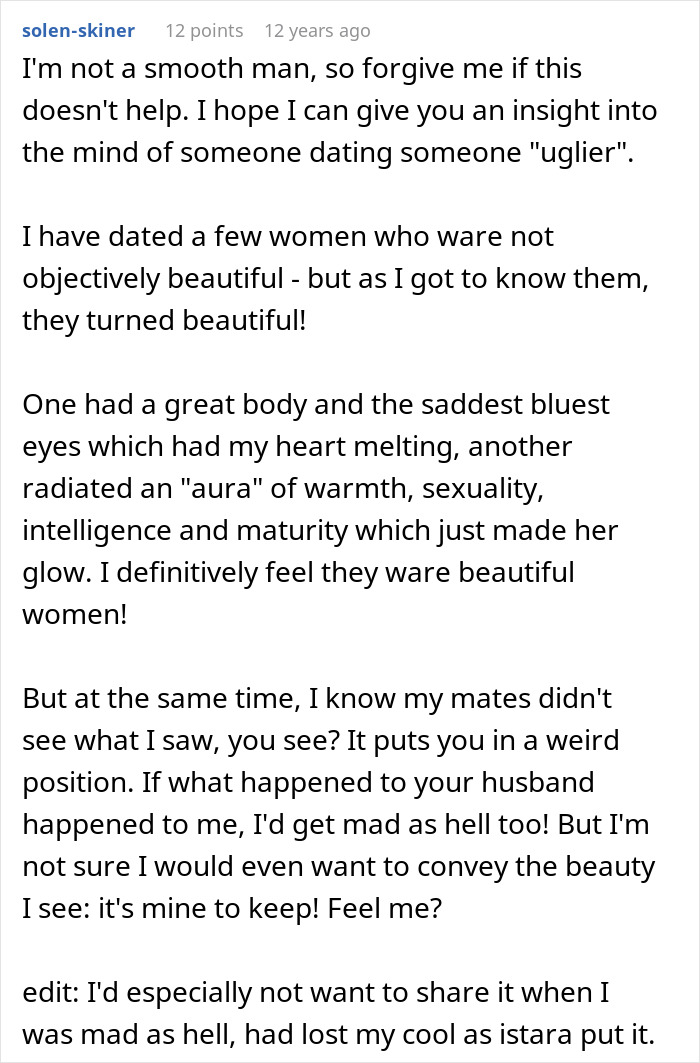
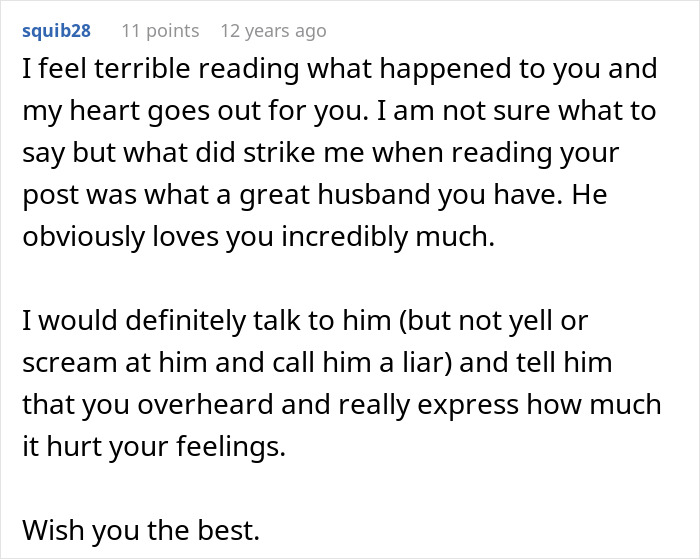
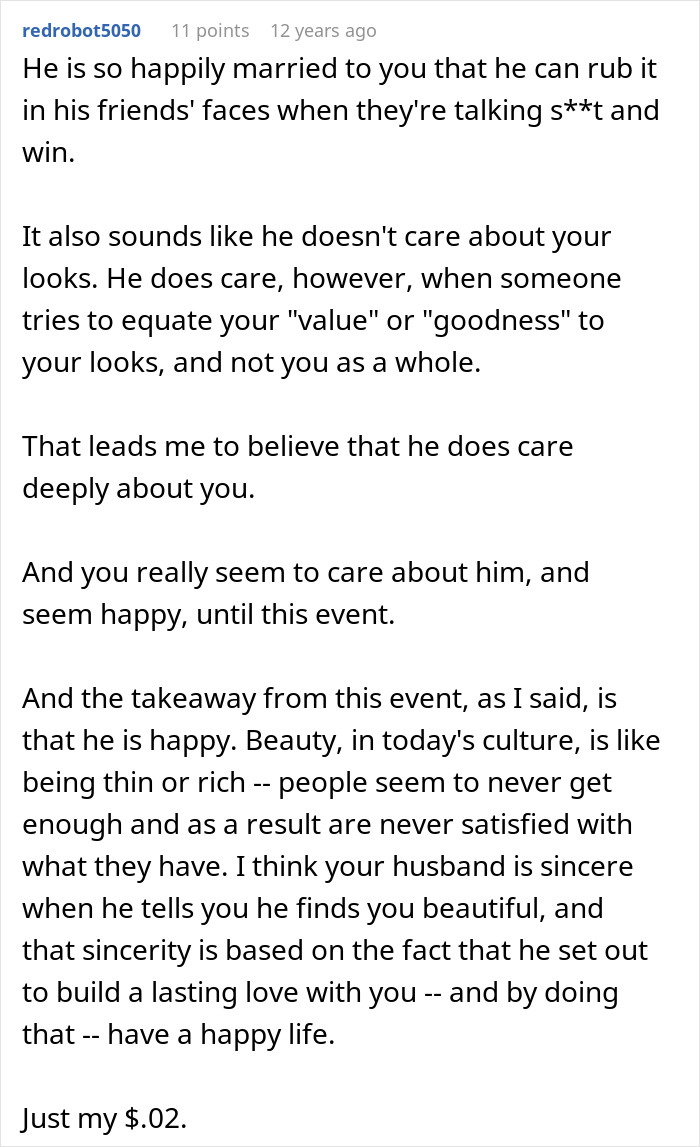
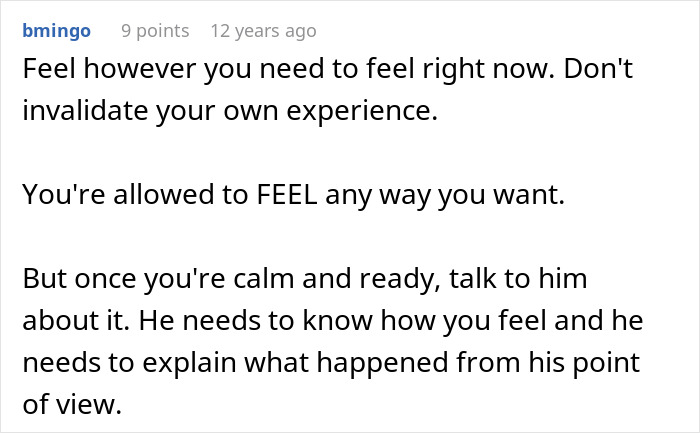
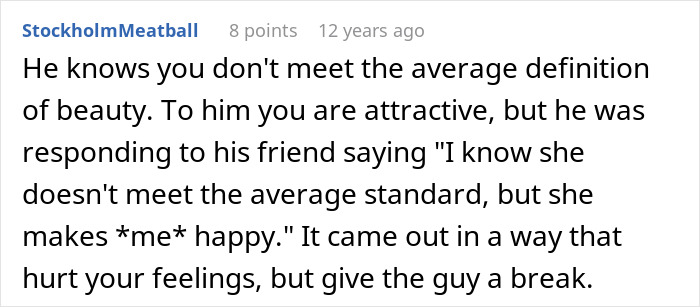
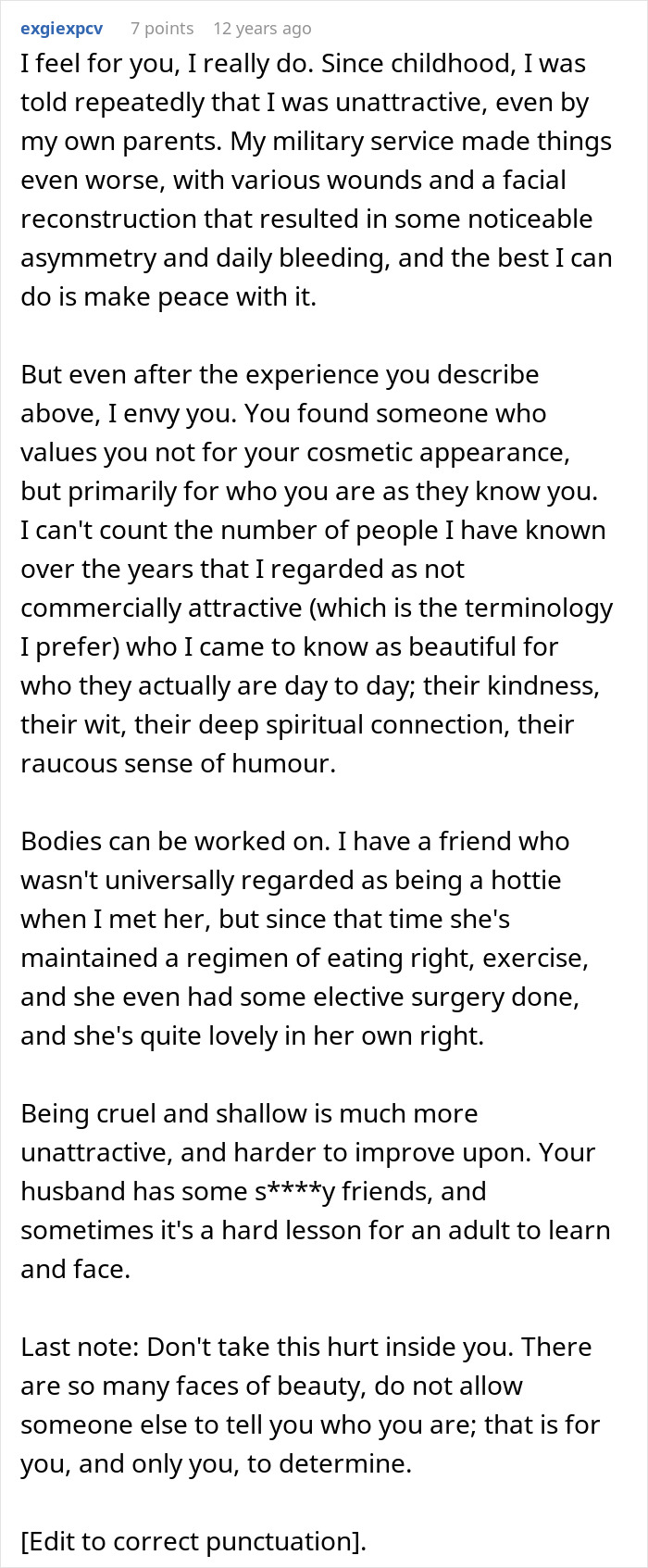
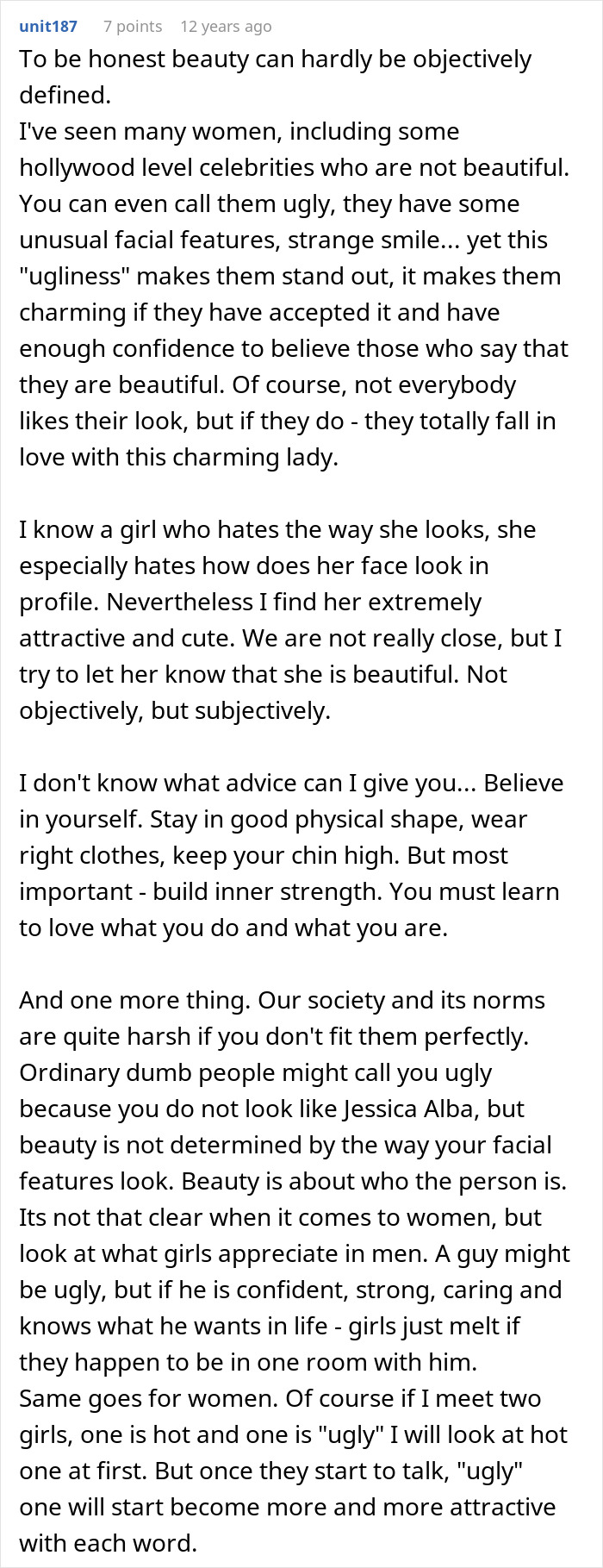
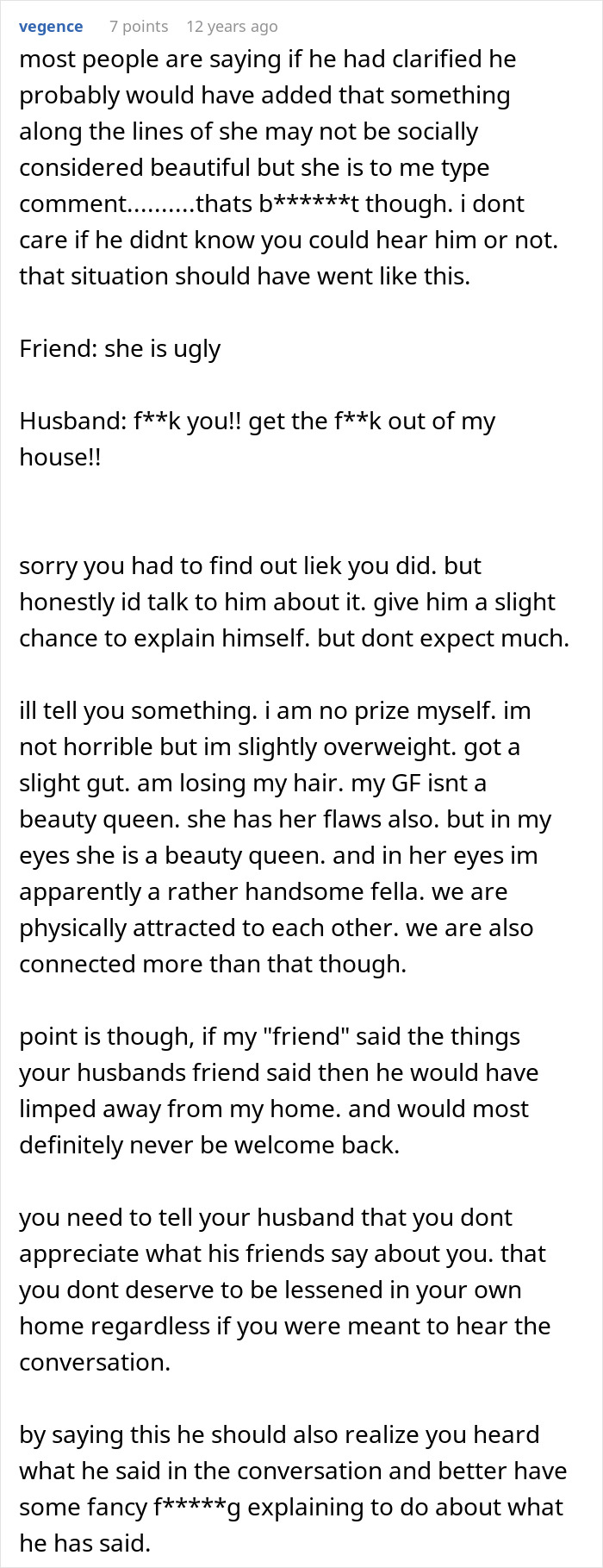
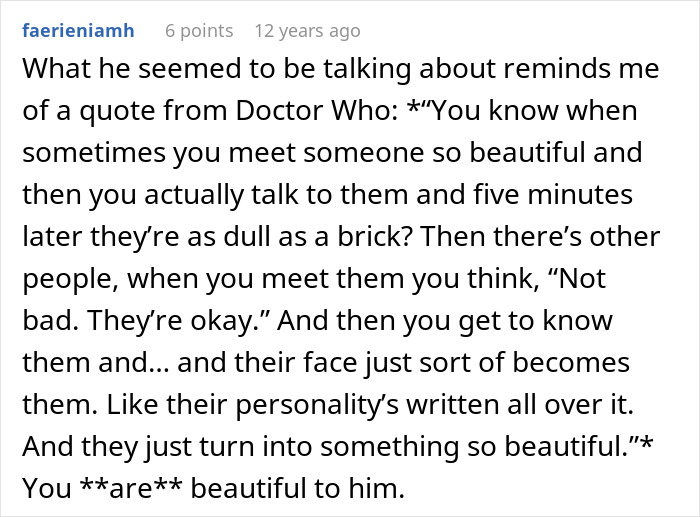
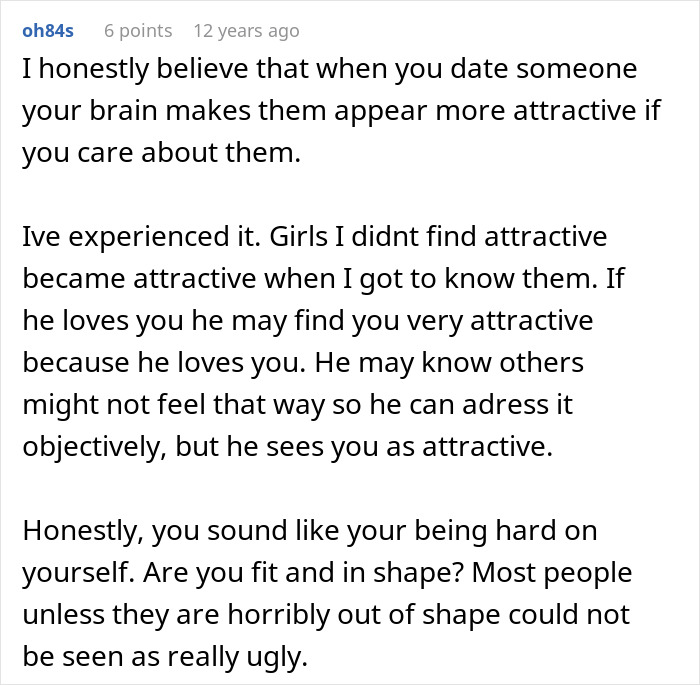


In a follow-up post, she shared that things had turned out much better than she ever expected
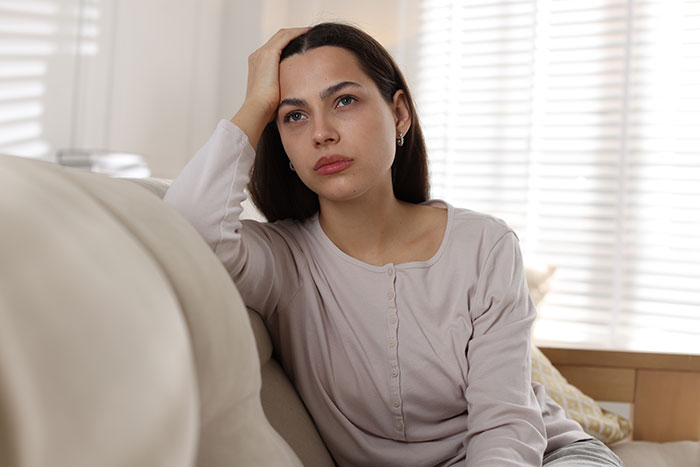
Image credits: africaimages / Envato (not the actual photo)

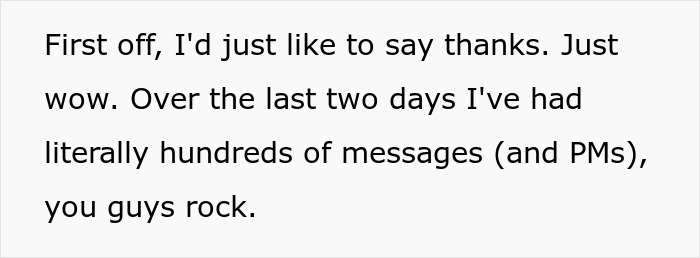
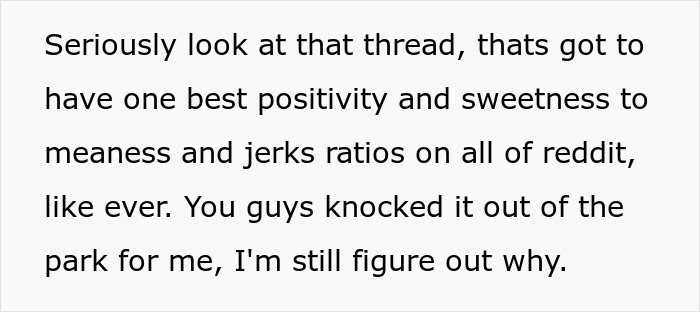
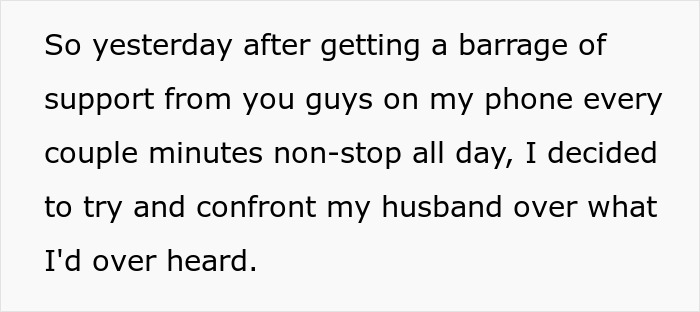
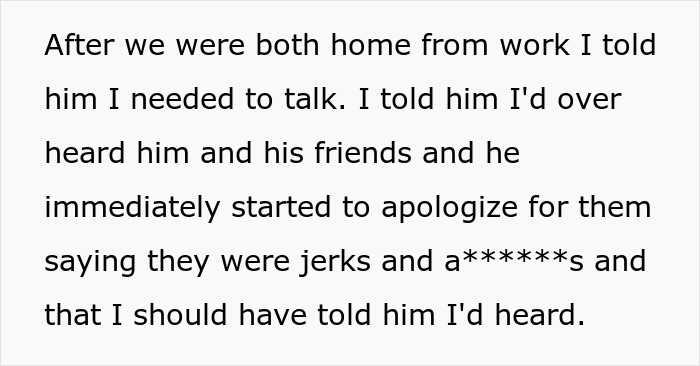

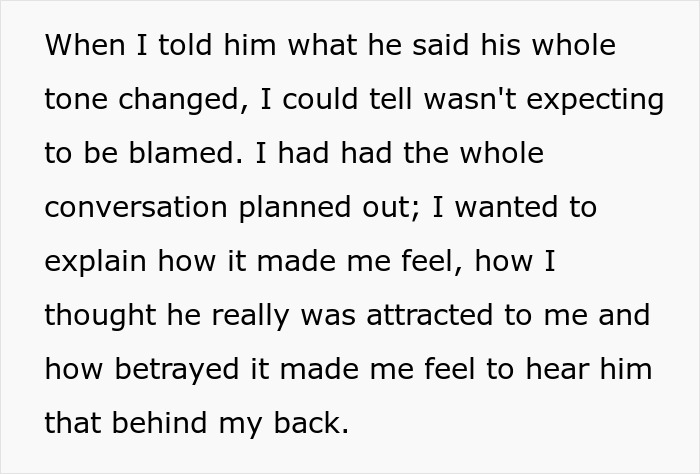

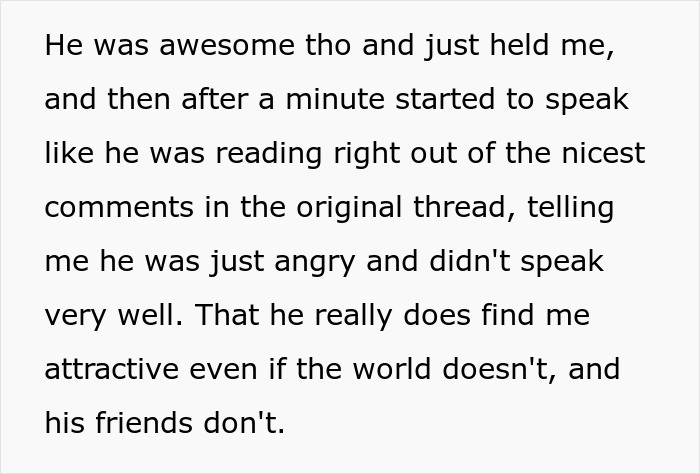
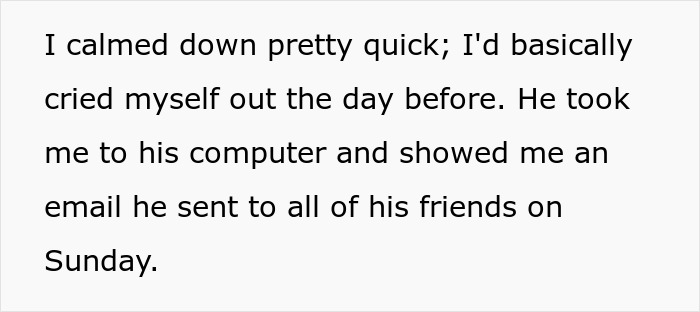
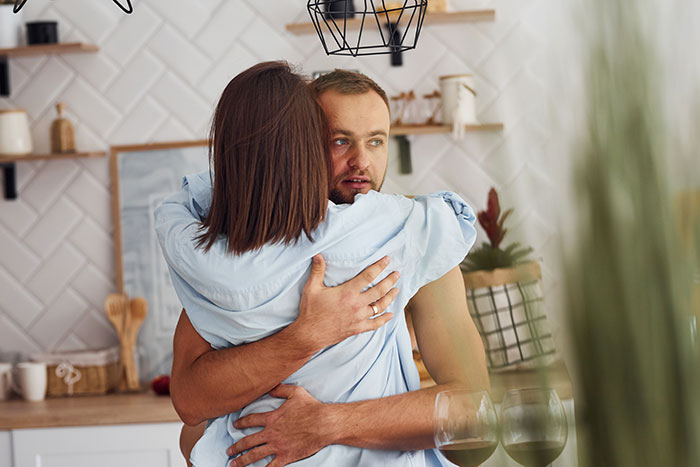
Image credits: mstandret / Envato (not the actual photo)
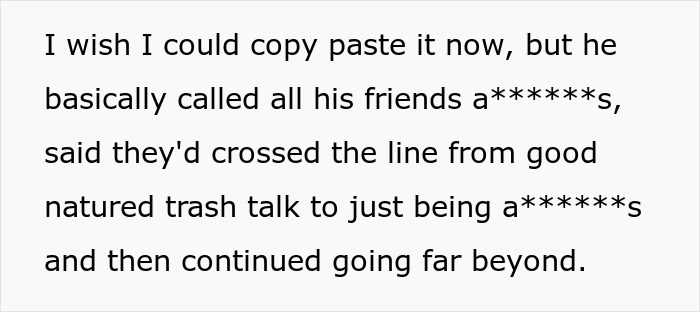
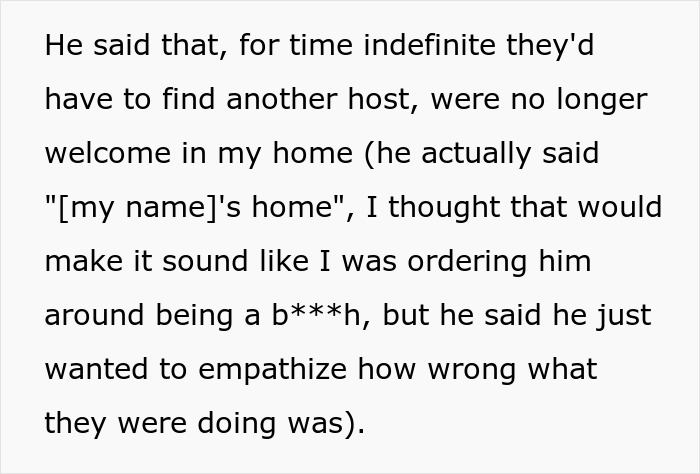
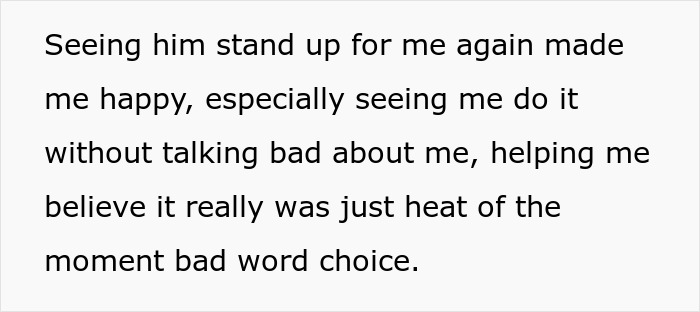


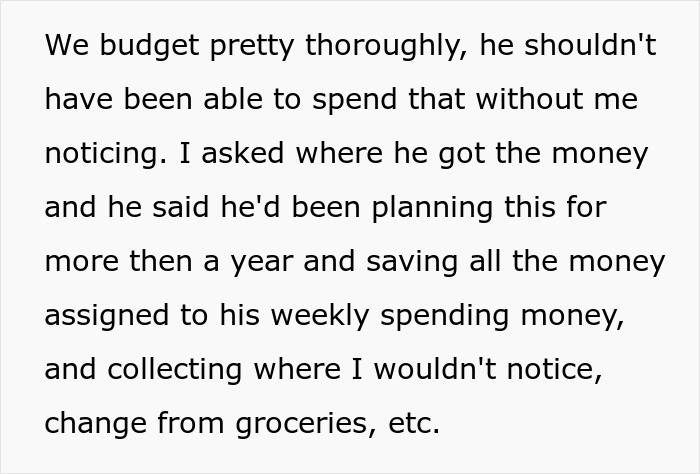
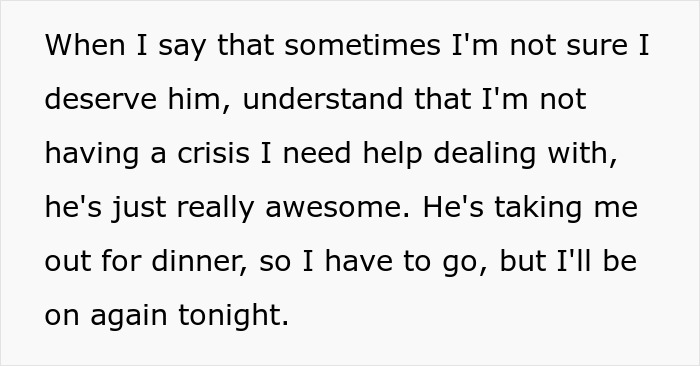

Image credits: s_kawee / Envato (not the actual photo)
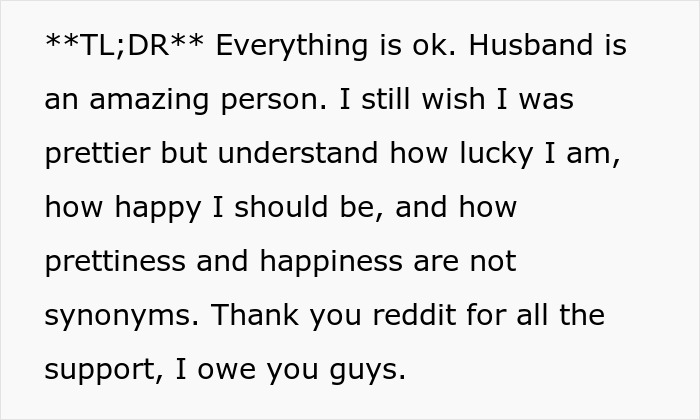
Image credits: uglywoman
Readers were glad to see that her story had a happy ending and that she had such a supportive husband
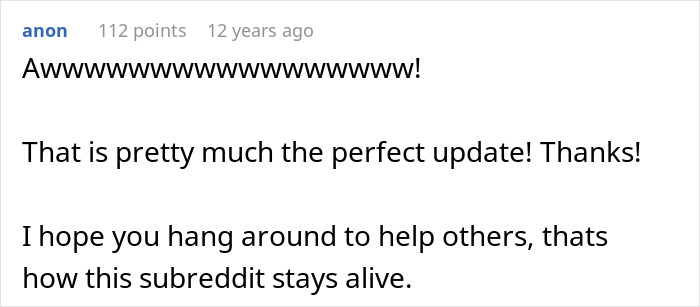
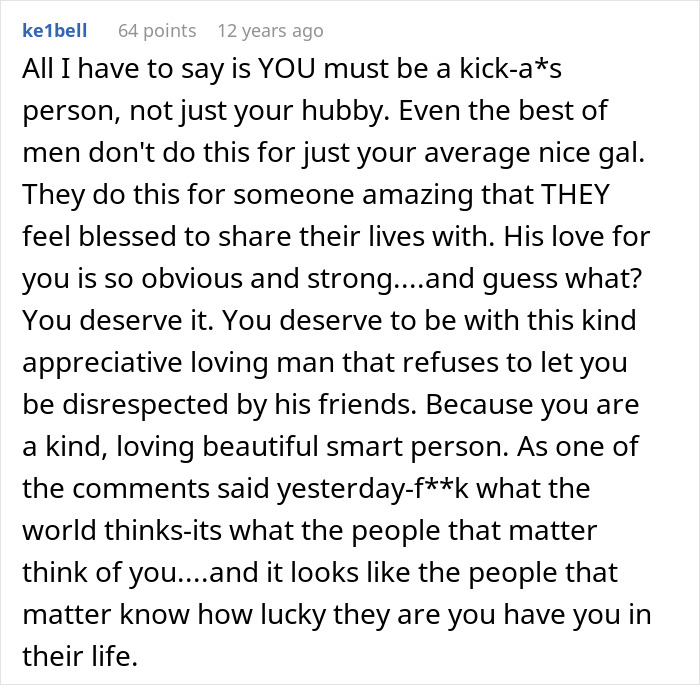
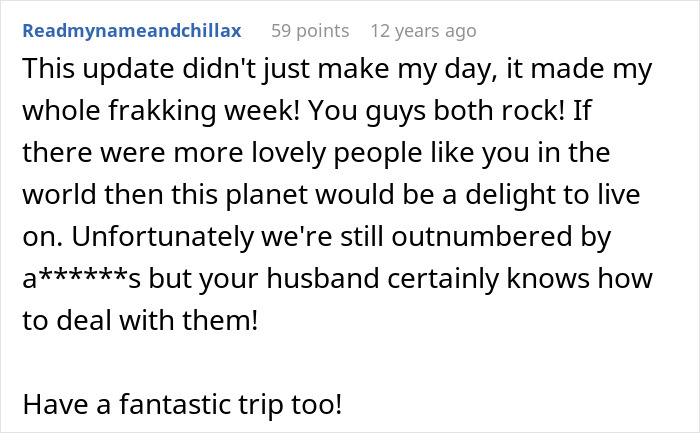

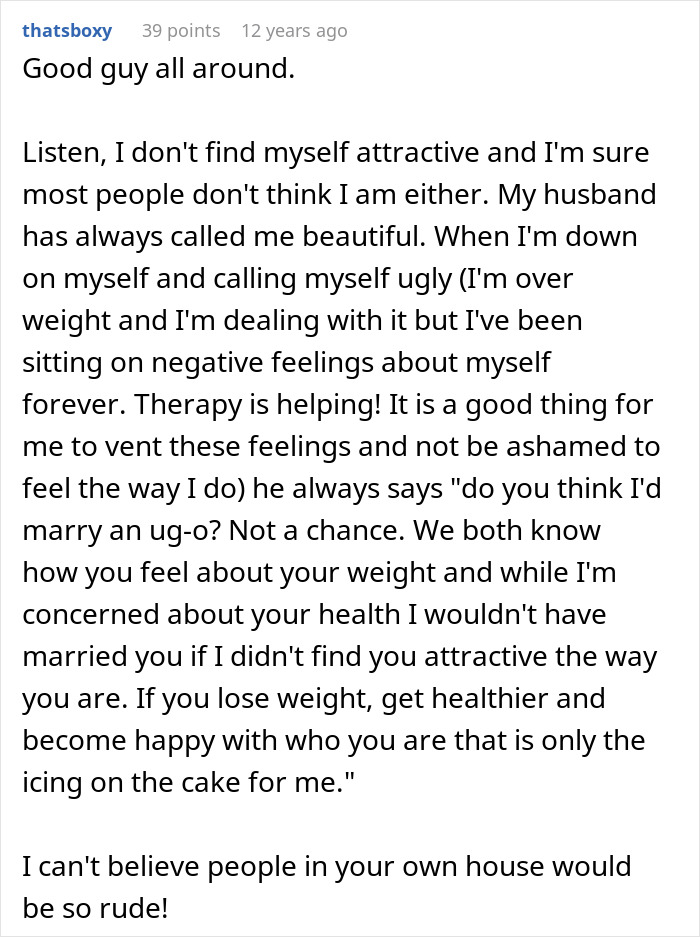

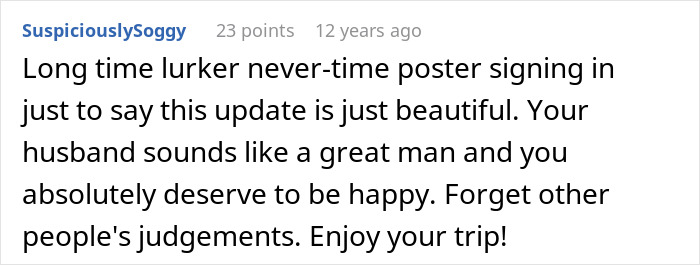

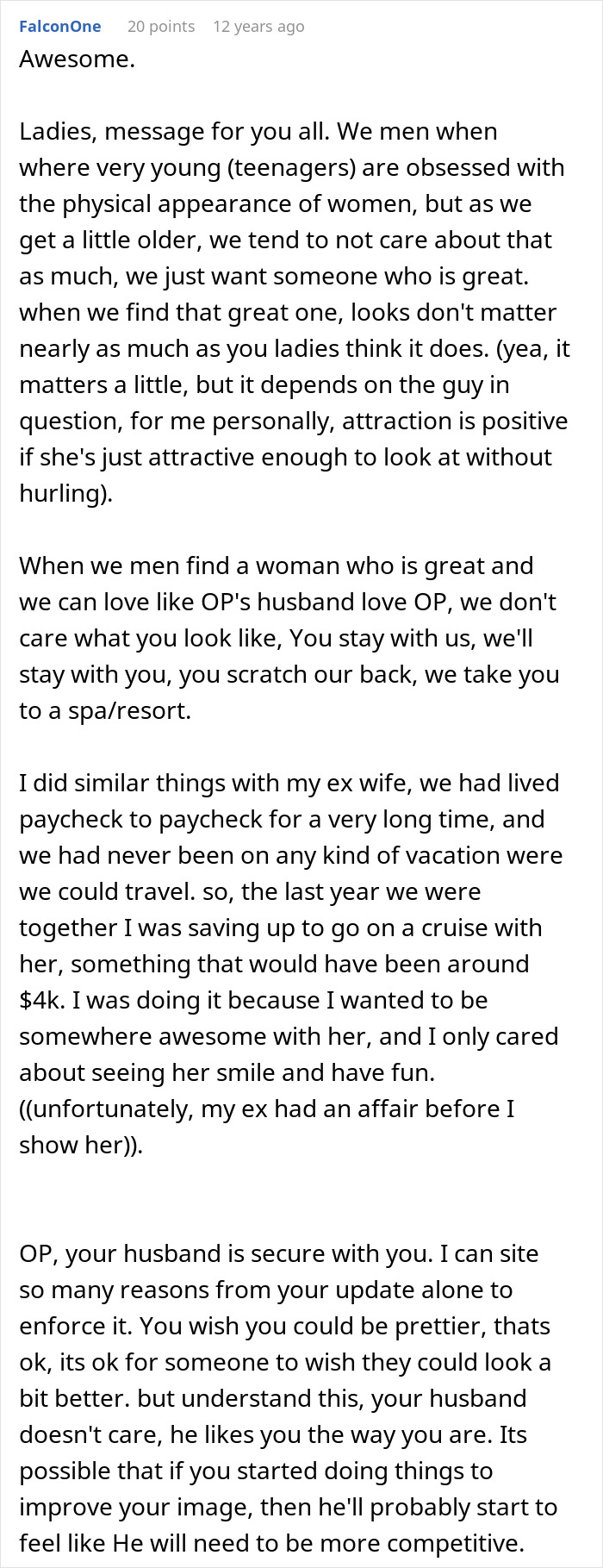




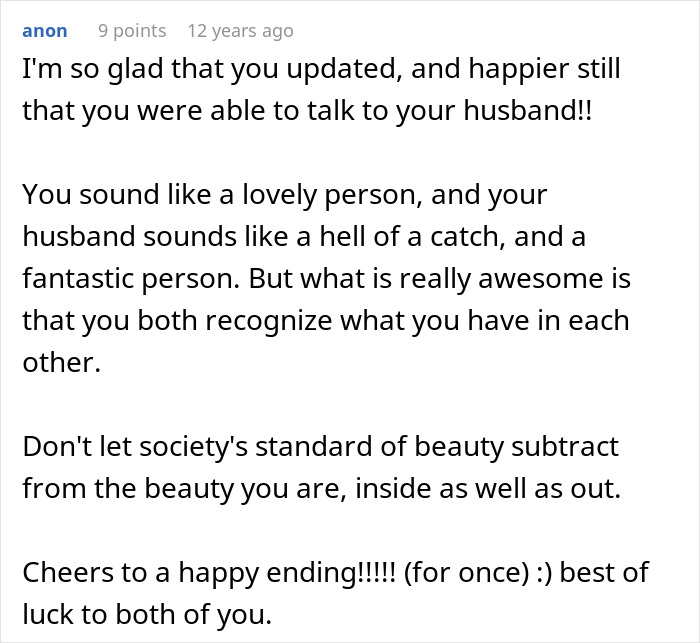
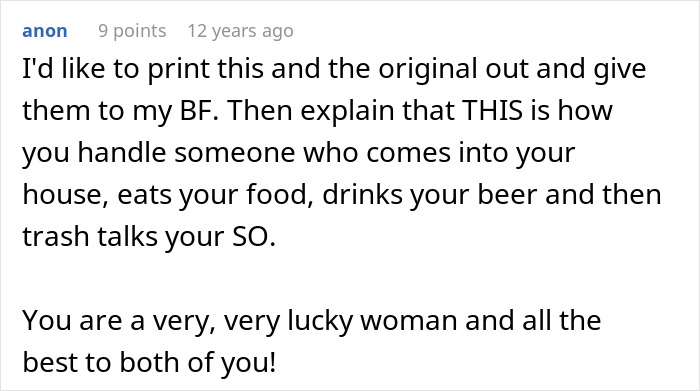


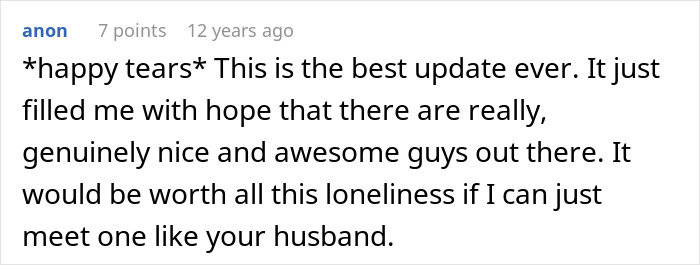





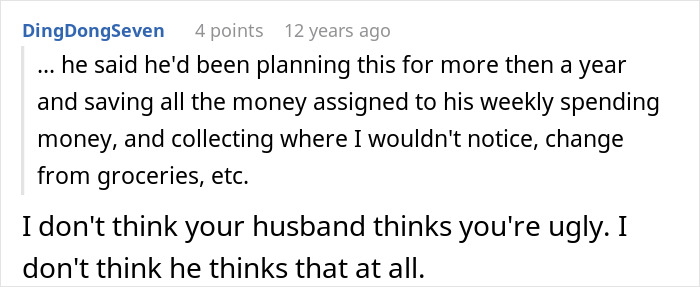






 Follow Us
Follow Us





